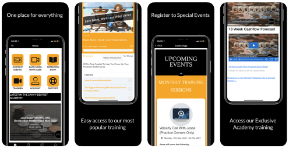As a practice owner and team leader, you’re going to face tough conversations from time to time. Whether it’s with a patient, team member, business partner, or member of the public – it’s up to you to keep your cool as you navigate tricky topics.
Often, we feel a little awkward, uncomfortable, and maybe even nervous when approaching an intense conversation or there’s the flip side where sometimes we barge in with guns blazing and are perhaps too aggressive.
For a more productive and mutually beneficial outcome, here are seven principles to keep in mind the next time you need to have a difficult conversation. By applying these tips, you’ll be able to meet as equals, communicate effectively, and resolve the issue.
1. Planning is key
Before you enter into a dialogue, take some time to collect your thoughts and maybe even jot a few things down if necessary. What do you need the other person to know? What do you understand about their point of view? What is your desired outcome?
If you go in without a plan, you’re more likely to speak from a place of emotion and reactivity – and could miss out on valuable points you needed to make. Plus, if you’ve taken that time to plan, you’re less likely to say something you’ll regret!
2. Deal with situations before they escalate
I know sometimes it’s our instinct to just wait and hope a tricky situation will resolve itself. But it really is important to nip things in the bud before they grow and fester into bigger problems.
If you can address a situation before it snowballs, you can prevent bigger issues like disgruntled patients or bickering team members. As a leader, it’s your responsibility to tackle things head on, no matter how uncomfortable it might be. If it’s going to prevent major headaches and pain points down the track, it’s worth it.
3. Think Win-Win-Win
When you think in terms of a win-win-win, this really means a win for you, a win for them, and a win for your practice. You don’t want to get the outcome you want at the expense of your professional relationship with the other party.
When you’re empathetic as to the other person’s needs, feelings, and circumstance, you can work towards a mutually beneficial outcome as opposed to either of you feeling robbed or steamrolled. When both parties are happy, this is a win for the practice and for your business!
4. Don’t be emotional or judgemental
How you say things is often worse than what you say. Even if you’re not swearing or yelling or being explicitly rude, it’s easy to pick up on the negative energy and moods. If you enter into that situation emotionally charged, it’s easy to trigger an emotional response in the other person and then you just create this negative cycle where nothing gets resolved.
5. Maintaining relationships and the self-esteem of others
The last thing you want to do is sour a relationship with a team member or patient; it’s a bad look if you’ve got people out there complaining about how badly you treated them – and it’s also not a nice feeling. The goal is to navigate the conversation in such a way that the relationship is still amiable and the person leaves feeling good about you and themselves.
By preserving the relationship, you’re also protecting your reputation as an individual and a practice.
6. Listen to confirm
One of the principles of active listening, is that you give the other person your undivided attention and repeat back a summary of what they’ve said. This is a great way to reduce miscommunications, because you’re confirming that you’re both on the same page and have the same understanding.
It’s also shows that you have a genuine interest in what they have to say and how they feel. This is especially important when it’s perhaps a difficult topic or a very emotional conversation – everyone has that human need to be seen, heard, and understood.
7. Avoid blame by using “I” statements
When we talk about “you did this and you forgot that”, it has the effect of blaming the other person for the problem, but also for your emotions. No matter how you’re feeling in the moment and how much you might want to communicate this way, it’s just going to take you nowhere fast. Blame only fosters defensiveness, and then you’ve got these two negative emotional reactions clouding the facts of the conversation.
It’s much more productive to use “I” statements like, “I felt confused as to why that happened, I get frustrated when people do this”. It brings about the natural empathy and understanding of the other person and talks more about the situation than the fault of the other person.
The fantastic thing about these seven principles, is that they extend beyond your role as a practice owner and are just as applicable in your personal life. Next time you have a difficult topic to tackle, try implementing a few of these tips and notice how much easier it becomes!
P.S. Whenever you’re ready …. here are 4 ways I can help you grow your dental practice:
1. Grab a free chapter from my book “Retention – How to Plug the #1 Profit Leak in Your Dental Practice”
The “Retention – How to Plug the #1 Profit Leak in Your Dental Practice” book is the definitive guide to patient retention and how to use internal marketing to grow your practice.
2. Join the Savvy Dentist community and connect with dentists who are scaling their practice too
It’s our Facebook group where clever dentists learn to become commercially smart so that they have more patients, more profit and less stress.
3. Attend a Practice Max Intensive live event
Our 2 day immersive events provide access to the latest entrepreneurial thinking and actionable strategies to drive your practice forward. You’ll leave with a game plan to take your results to the next level. If you’d like to join us, just send me a message with the word “Event and I’ll get you all the details!
4. Work with me and my team privately
If you’d like to work directly with me and my team to take your profit from 6 figures to 7 figures …. just send me a message with the word “Private”… tell me a little about your practice and what you would like to work on together, and I’ll get you all the details!







